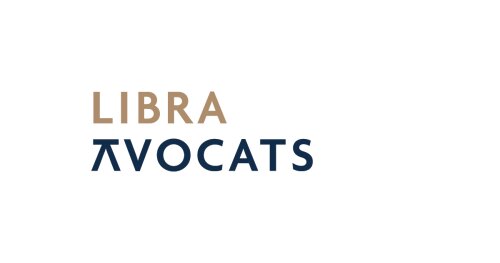Best Lawyers in Diekirch
Share your needs with us, get contacted by law firms.
Free. Takes 2 min.
List of the best lawyers in Diekirch, Luxembourg
About hiring a lawyer in Diekirch, Luxembourg
Hiring a lawyer in Diekirch generally begins with defining your needs. Identify the type of matter you have, such as family, employment, business, real estate, criminal, or administrative. Shortlist lawyers who practice in that area and who appear regularly before the courts serving the Diekirch district. Initial contact can be made by phone, email, or through an online form to request a consultation and a fee estimate.
During the first meeting, expect the lawyer to ask detailed questions, review documents, and assess deadlines. Luxembourg lawyers are required to verify your identity under anti-money laundering rules, so bring a passport or ID card and proof of address. If you agree to proceed, you will receive a written engagement letter that describes the scope of work, fees, and billing method. Common fee arrangements include hourly rates, fixed fees for defined tasks, and performance-based success fees as a supplement. Pure contingency fees are not permitted. Fees are generally subject to Luxembourg VAT, and the standard rate is 17 percent.
Before you hire, ask about experience with similar cases, expected timelines, possible outcomes, and communication practices. Confirm whether the lawyer is admitted to practice and, if needed, whether they hold the additional qualification required to plead before higher courts. You can also ask about the possibility of legal aid if your financial situation qualifies. Keep copies of the engagement letter, fee estimates, and all invoices.
Why You May Need a Lawyer
People in Diekirch seek legal help for many reasons. Home buyers and sellers often consult lawyers to review preliminary sale agreements, coordinate with notaries, and address title or planning issues. Employees and employers use lawyers for employment contracts, non-compete clauses, dismissals, and workplace disputes. Families consult lawyers for marriage contracts, divorce, parental authority, and maintenance. Entrepreneurs and small businesses turn to lawyers for company formation, shareholder agreements, commercial contracts, and debt collection. Cross-border commuters and businesses operating near Belgium and Germany may need advice on jurisdiction, applicable law, and enforcement of judgments. Individuals may need representation for traffic offenses, criminal charges, or victim assistance. Consumers engage lawyers for warranty disputes, insurance claims, and unfair contract terms. Landlords and tenants may require help with lease drafting, deposits, rent increases, and eviction procedures. Heirs and executors turn to lawyers and notaries for succession planning, wills, and estate settlement. Data protection and compliance matters also arise for local associations and SMEs.
Local Laws Overview
Luxembourg is a civil law jurisdiction. Statutes and regulations are published on the official legal portal. The Diekirch district is served by the Diekirch District Court for civil, commercial, and criminal matters, and by the Justice of the Peace for smaller civil claims and certain tenancy issues. Appeals are generally heard in Luxembourg City, where the Court of Appeal and the Supreme Court are located. Administrative disputes are handled by the Administrative Tribunal and Administrative Court in Luxembourg City. Language in proceedings is typically French or German, with Luxembourgish often used in hearings. English may be used in communication with counsel, but filings are usually in an official language.
Real estate transfers are executed before a notary, with land registry formalities and applicable registration duties. Lawyers commonly advise on negotiations, due diligence, and disputes. Employment law sets rules on hiring, working time, leave, termination, and collective rights. Consumer law provides protections on distance sales, guarantees, and unfair terms. Company and commercial laws cover corporate governance, directors duties, and insolvency procedures. Criminal law and traffic regulations are enforced by police and prosecutors, with an emphasis on road safety. Data protection is governed by the GDPR and national rules, supervised by the data protection authority. Legal aid may be available to qualifying residents for civil, criminal, and administrative matters. Court structures, jurisdictional thresholds, and procedural rules are set by statute, so counsel can advise on which court is competent and on the correct procedure for filings, evidence, and appeals.
Frequently Asked Questions
How do I choose the right lawyer in Diekirch
Look for a lawyer who regularly handles your type of matter and who appears before the local courts when litigation is likely. Ask about experience, approach, expected timelines, and fees. Confirm admission to the Bar and request a written engagement letter that defines scope, billing, and how often you will receive updates.
How much does a lawyer cost in Luxembourg
Fees vary by seniority, complexity, and urgency. Lawyers may charge hourly rates, fixed fees for defined tasks, or a fixed fee plus a success component. Pure contingency fees are not allowed. Fees are generally subject to 17 percent VAT. You can request a fee estimate and ask for periodic billing to keep costs transparent.
Can I obtain legal aid
Yes. Legal aid, called assistance judiciaire, may be granted based on financial means and the merits of the case. It can cover lawyer fees, court costs, and expert fees. Applications are made through the competent authority and require supporting documents about your income and household. See the official guidance on the national citizens portal for how to apply.
Will my case be handled in French, German, or Luxembourgish
Proceedings are typically conducted in French or German. Luxembourgish is commonly spoken, especially in hearings, but formal filings are usually in French or German. If you prefer English, ask your lawyer to translate and explain documents and to manage language needs with the court or counterparty.
Do I need a lawyer for a real estate transaction
A notary must formalize the deed of sale, but a lawyer can protect your interests before signing, review conditions in the preliminary agreement, coordinate due diligence, handle disputes, and advise on financing, co-ownership, and planning compliance. Having both a notary and a lawyer is common when issues are complex or contested.
Can any lawyer represent me before all courts
In Luxembourg, all admitted lawyers can represent clients in many matters. Certain higher courts and specific procedures require an additional qualification. If your case may go to appeal or involves complex procedures, confirm that your lawyer holds the necessary rights of audience or works with a colleague who does.
How long will my case take
Timelines depend on the type of case, court workload, and whether parties settle. Straightforward matters may resolve in weeks or months, while contested litigation can take longer. Your lawyer can estimate timing for each stage and identify opportunities to expedite or settle.
What is the difference between a lawyer and a notary
Lawyers advise and represent clients in negotiations, disputes, and litigation. Notaries are public officers who authenticate certain acts, especially real estate transactions and some family and company acts. In many matters, a notary prepares the authentic deed while a lawyer advises you, negotiates terms, and handles disputes if they arise.
Are contingency fees allowed
Pure contingency arrangements where the fee is only a percentage of the outcome are not permitted. A success fee can be agreed as a supplement to a base fee. Fee agreements must be fair and transparent, and you should receive them in writing.
How do I complain about a lawyer
Complaints about professional conduct are handled by the disciplinary bodies of the Bar. You should raise concerns with the lawyer first, then submit a written complaint to the Bar Council if needed. For fee disputes, ask for an explanation and an itemized invoice. Your lawyer can also explain how to request taxation or review of costs where available.
Additional Resources
Courts and justice system overview, including addresses, competencies, and practical guides, are available on the Ministry of Justice portal:
Lawzana helps you find the best lawyers and law firms in Diekirch through a curated and pre-screened list of qualified legal professionals. Our platform offers rankings and detailed profiles of attorneys and law firms, allowing you to compare based on practice areas, experience, and client feedback.
Each profile includes a description of the firm's areas of practice, client reviews, team members and partners, year of establishment, spoken languages, office locations, contact information, social media presence, and any published articles or resources. Most firms on our platform speak English and are experienced in both local and international legal matters.
Get a quote from top-rated law firms in Diekirch, Luxembourg — quickly, securely, and without unnecessary hassle.
Disclaimer:
The information provided on this page is for general informational purposes only and does not constitute legal advice. While we strive to ensure the accuracy and relevance of the content, legal information may change over time, and interpretations of the law can vary. You should always consult with a qualified legal professional for advice specific to your situation.
We disclaim all liability for actions taken or not taken based on the content of this page. If you believe any information is incorrect or outdated, please contact us, and we will review and update it where appropriate.
Refine your search by selecting a practice area.





























